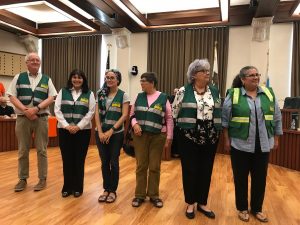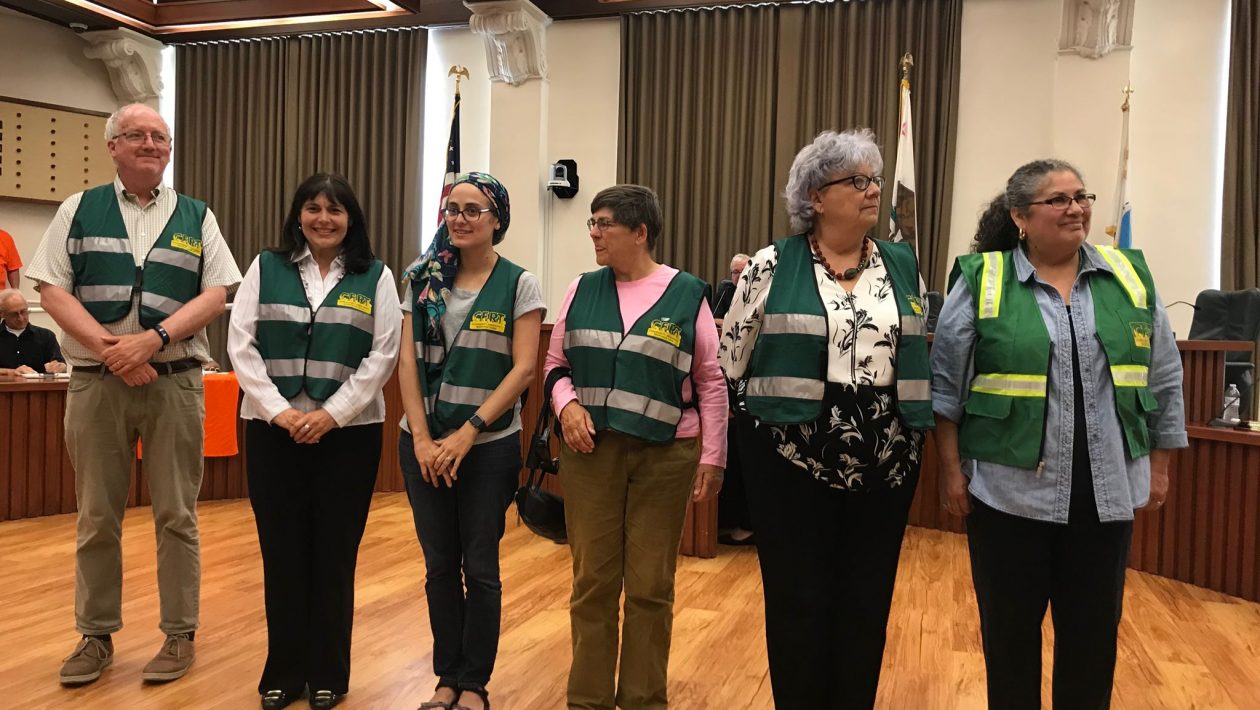
MARTINEZ, Calif. – Martinez City Council has agreed to obtain a $4 million line of credit from US Bank to pay Social Security obligations it has incurred as a result of the dissolution of the Pleasant Hill-Martinez Joint Facilities Agency.
It is a better approach than making installment payments to the Internal Revenue Service, Finance Director David Glasser said. The expected 3.5 percent rate is competitive, and the loan would be repaid in five years, he said.
Repayment would come from the city’s General Fund, Mayor Rob Schroder said. City Manager Brad Kilger added, “The IRS wants the full payment up front.”
The city incurred the obligation as a result of a decision in 1975, when an agreement was drafted to form a joint facilities agency (JFA) with Pleasant Hill. The agreement said the two cities wanted to develop and operate shared facilities and services under a public entity separate from the two municipalities.
Martinez employees working for the JFA would not have Social Security payments deducted from their paychecks, although they would be enrolled in the California Public Employees Retirement Service (CalPERS).
Shortly after the JFA became effective, Pleasant Hill apparently withdrew from the agreement, and the Martinez Council began serving as its board of directors.
“How did we get into this mess?” Councilmember Mark Ross asked. “It was the result of a decision made in the 1980s.” That decision, he said, created a “paper organization” and “shell” that avoided Social Security payments from both the city as well as employees.
CalPERS and the IRS began raising questions about the JFA, and the CalPERS Office of Audit Services (OAS) reviewed the situation, concluding that the JFA hadn’t truly existed for some time.
In 2015, CalPERS told Martinez officials that employees working for the JFA should have been designated as city employees all along, and also should have been paying in to Social Security.
Since then, the city and CalPERS have been negotiating a settlement. The city will pay three years’ worth of both employees’ shares as well as its own shares of Social Security from 2015 through July 31.
Glasser said the city has a AA rating and is in a solid financial situation, which led US Bank to make the unsecured line of credit available so the retroactive payments could be made by Aug. 1.
“This has taken up a lot of time. It’s better to pay the debt now,” Ross said. The rest of the Council agreed.
The Council also unanimously certified the city’s share of the June 5 primary, including the results of two ballot measures that were designed to preserve open space within Martinez.
The grassroots citizens’ initiative Measure I received 5,452 of 10,507 votes. It differed from the city’s ballot measure in that it required public referendum if any open space or recreation area were under consideration for more intense zoning in preparation for development
The city’s Measure F, which had a similar purpose but exempted private property earned 5,349 of 10,589 votes. The measure that gathered more “yes” votes was decided to be declared the winner.
The election results also must be certified at the county level before being sent to Sacramento.
The Council agreed with Martinez Police Chief Manjit Sappal to revise the city code to adopt changes in county animal control laws by reference, authorizing Contra Costa County Animal Services enforce laws within the city.
Reports on the Martinez Housing Element and General Plan implementation also were approved for transmission to the state.
The city’s contract for recycling education, made with New Leaf Collaborative and Martinez Unified School District, was approved.
Maureen Behrendt, Timothy Phillips and Susan Gustofson were reappointed to two-year terms on the Design Review Committee; Carter Wilson, Carolyn Duncan and Peter Carpenter were reappointed to four-year terms on the Cemetery Commission; Sigrid Waggener and Gabriel Lemus were reappointed to four-year terms on the Planning Commission; Shane Bower was appointed to a four-year term to the Veterans Commission; and James Blair received a new appointment as a person living outside the city but inside Martinez’s sphere of influence to a four-year term on the Planning Commission.
The Council appointed Mayor Rob Schroder as its delegate to the League of California Cities annual conference Sept. 12-14 in Long Beach, and chose Councilmembers Debbie McKillop and Noralea Gipner as alternate voting delegate.
During the opportunity for members of the audience to speak on subjects not on Wednesday night’s meeting agenda, several individuals urged the Council opt out of Senate Bill 54 that curtailed local police participation in federal immigration enforcement. Santa Clarita is one California place that has rejected SB 54.
Some cited concerns for personal safety, worries about the growing homeless problem and crimes caused by those who have entered the country without proper documentation.
Since the matter was not on the agenda, the Council could take no action on the citizens’ requests. However, under Commission comments, Vice Mayor Lara DeLaney said the act “is the law of California.”
Martinez has sided with the law, she said. “We value diversity,” she said. “We can’t opt out of a state law….I think we’ve taken the right stance.”
Schroder agreed, saying he wouldn’t put the item on a future agenda.
They also heard from members of the Laborers’ International Union of North America Local 324, asking the Council to consider giving member employees better compensation.
Several residents, including Councilmember Debbie McKillop, were sworn in as Community Emergency Response Team (CERT) disaster service workers.
The others are Alexandra Morphy, Luana Horstkotte, Catherine Owen, Alison Sorscher and Frank Kelly.





